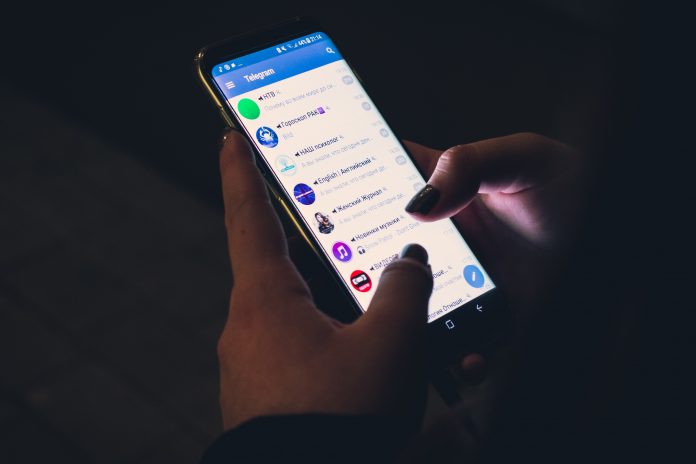Protecting our Online Chat Data is one of the most overlooked things online today.
Since a large portion of our professional and personal lives moved online, the need for data protection has become more stringent than ever.
The online world created new types of dangers we need to protect from.
These dangers range from Sites following every step online to more severe issues like unauthorized usage of photos and other personal info or data breaches.
Online privacy is essential, especially in communication via various messaging apps.
Tips to improve data protection online.
Check the app privacy settings
Any online messaging app needs to have a clear and reliable privacy policy created to protect the user’s data.
You need to be able to decide what information you leave private and what can be made public.
Private Information & Online Chat Data
No matter how secure that communication app is, private personal or medical information should not be sent through a messaging app.
The same principle applies to business confidential information.
Use password protection for documents or set up and use a privately own communication network to send out private or confidential information.
Messaging apps with end-to-end encryption
End to end encryption (E2EE) is a method of encrypting the data so that only the sender and receiver can read the message.
It does not allow the messaging app to store copies of your messages on their servers.
Many modern apps use this technology although there are a few of them which still have encryption in transit.
This means that messages are decrypted on the provider’s side and stored on their servers.
Secure Passwords protect Online Chat Data
Any messaging app requires a login.
Make sure you use a secure password to log in comprised of 12 characters or more to protect your Online Chat Data.
Also, if you have more messaging accounts on different apps, use a different password for each account.
Since it is almost impossible to remember all these passwords, a password manager with one master password may be of use.
Review permissions for mobile apps
Mobile messaging apps ask you to permit to access contacts or device storage and to use the camera, microphone, location.
Some of them can’t function without that information, but others use them just for marketing purposes.
Check the app settings and decide what information is necessary for the app to have and to Protect your Online Chat Data.
Privacy on WIFI networks
The public WIFI networks do not encrypt traffic, and this means anyone on that network can see what you are doing.
Avoid having a confidential conversation over public WIFI network and refrain from sending any sensitive data — logins, passwords, credit card data — over public Wi-Fi.
Top 10 most secure online messenger chat programs
1. Signal
Signal is considered the most secured app that exists on the market.
It developed a protocol for messaging security that is now considered a standard over the industry.
This encryption engine is open source so that anyone can use it.
The user interface is rather dull and offers basic features like text messaging, multimedia, audio and video call, group chats, and file sharing.
You can use Signal as a replacement for your default SMS app, but the SMS texts aren’t encrypted.
It also supports disappearing messages that vanish after a specific time, which makes it perfect for those conversations you don’t want to stay on the record.
2. Wickr
This app is one of the most secure messaging apps on the market because it does not collect data or metadata.
It also includes a shredder feature allowing the user to delete all conversations and files ever shared on the platform.
If you need extra privacy, this app may be a viable solution since it does not require a phone number or an email address to register.
For the PRO version, Wicker is the only app on the market, offering encrypted group video calls.
3. Wire
Wire collects some data about its users.
However they comply with all European Union data and privacy laws and has end-to-end encryption.
It is open-source and available for all browsers. However, to synchronize easier on the device, the app store user information like emails, phone numbers, and usernames, and unfortunately, it is all saved in plain text.
4. Telegram
Over 100 million people use Telegram since it is easy to use and offer many extra features.
They have an encryption protocol developed by an in-house team.
However, the encryption is not a default feature and the app is not open source and does not provide transparency reports.
5. iMessage
iMessage is backed up by Apple reputation in cybersecurity.
It has default end-to-end encryption, unlike other apps on the market.
However, they collect mobile numbers and contact lists and store them in plain text.
Also, they do not encrypt any data synced to iCloud, which is a great security vulnerability.
6. Facebook Messenger
Facebook messenger is used by billions of people and has the reputation of being fun and user-friendly.
They offer encryption, but it is not default and not advertised.
You need to go to conversation settings and manually activate it for each conversation.
They still collect contact information and behavioral data of their users.
7. Whatsapp
This is the most widely spread messaging app worldwide, with over 1 billion users.
It is very user-friendly and incorporates features like file sharing, video calling, or location sharing.
They comply with all cybersecurity protocols, including the powerful encryption protocol developed for Signal.
More than that, they added the Perfect Forward Secrecy (PFS).
This means that, if by any chance, someone manages to break into the encryption and steal the decoding key, they will be able to see only the last message.
The rest of the messages remain private.
Even if they have experienced a security breach in the past, they continuously work on protecting the users’ data.
8. Silence
The core focus of this app is to keep the messages safe and secure with a particular interest in SMS and MMS, rather than chat protocols.
They use the same open-source, ultra-secure encryption methods designed by Signal.
To enter the app, you need to unlock it with a passphrase.
Moreover, the conversations cannot be screenshotted at the other end.
9. Threema
Threema offers the possibility to use the app anonymously.
Both messages and phone calls that can be securely encrypted.
They do not save any contact details on their servers.
Also, they delete all messaging data once it is sent out, therefore the data remains only on your phone.
They manage to comply with these highly secure protocols while still incorporate the basic messaging features like calls, text messaging, or multimedia and location sharing.
10. Viber
When they launched the new version, Viber added the end-to-end encryption, thus improving their cybersecurity.
All the useful features in this private chat app offer the users a high-quality calling experience while still complying with the standard security protocol.
All the information shared is protected along the way with the end-to-end encryption system.
As we live in a world where cybersecurity is more important than ever, we need to make sure that we use the safest path to send out our data.
Apart from using a messaging app with end-to-end encryption, make sure you do not send private or sensitive information via a non-secure network.





